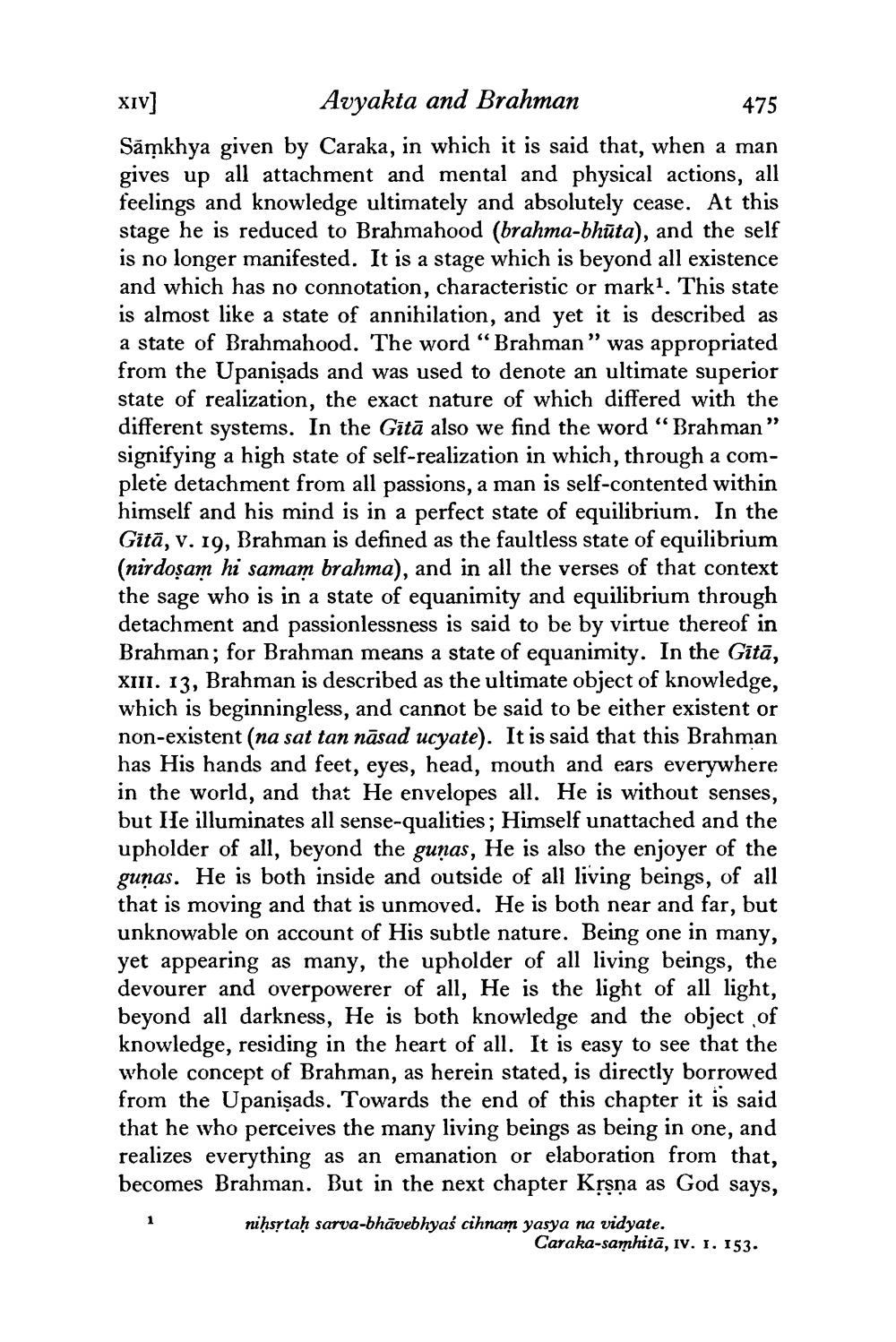________________
XIV]
Avyakta and Brahman
475
""
Samkhya given by Caraka, in which it is said that, when a man gives up all attachment and mental and physical actions, all feelings and knowledge ultimately and absolutely cease. At this stage he is reduced to Brahmahood (brahma-bhūta), and the self is no longer manifested. It is a stage which is beyond all existence and which has no connotation, characteristic or mark1. This state is almost like a state of annihilation, and yet it is described as a state of Brahmahood. The word "Brahman" was appropriated from the Upanisads and was used to denote an ultimate superior state of realization, the exact nature of which differed with the different systems. In the Gitā also we find the word "Brahman signifying a high state of self-realization in which, through a complete detachment from all passions, a man is self-contented within himself and his mind is in a perfect state of equilibrium. In the Gitā, v. 19, Brahman is defined as the faultless state of equilibrium (nirdoṣam hi samam brahma), and in all the verses of that context the sage who is in a state of equanimity and equilibrium through detachment and passionlessness is said to be by virtue thereof in Brahman; for Brahman means a state of equanimity. In the Gitā, XIII. 13, Brahman is described as the ultimate object of knowledge, which is beginningless, and cannot be said to be either existent or non-existent (na sat tan nāsad ucyate). It is said that this Brahman has His hands and feet, eyes, head, mouth and ears everywhere in the world, and that He envelopes all. He is without senses, but He illuminates all sense-qualities; Himself unattached and the upholder of all, beyond the gunas, He is also the enjoyer of the gunas. He is both inside and outside of all living beings, of all that is moving and that is unmoved. He is both near and far, but unknowable on account of His subtle nature. Being one in many, yet appearing as many, the upholder of all living beings, the devourer and overpowerer of all, He is the light of all light, beyond all darkness, He is both knowledge and the object of knowledge, residing in the heart of all. It is easy to see that the whole concept of Brahman, as herein stated, is directly borrowed from the Upanisads. Towards the end of this chapter it is said that he who perceives the many living beings as being in one, and realizes everything as an emanation or elaboration from that, becomes Brahman. But in the next chapter Kṛṣṇa as God says,
niḥsṛtaḥ sarva-bhāvebhyaś cihnam yasya na vidyate. Caraka-samhita, IV. I. 153.




